This is an audio transcript of the Life and Art from FT Weekend podcast episode: Culture Chat — The FT takes on ‘Industry’ season 3
Lilah Raptopoulos
Welcome to Life and Art from FT Weekend. I’m Lilah Raptopoulos and this is our Friday chat show. Today we are talking about the hit television series Industry, a finance drama set in the fictional investment bank Pierpoint. We follow the lives of bankers from Rob to Yasmin Harper to Eric as they navigate the cut-throat worlds of finance, government and media alongside their own very intense personal dramas.
[INDUSTRY TRAILER PLAYING]
Lilah Raptopoulos
The third season is streaming now on HBO and iPlayer. It guest stars Kit Harington of Game of Thrones fame as the corrupt CEO of a green energy company called Lumi. There are themes of greenwashing, terrible politics, press manipulation, and critics are calling this season the wildest and most bombastic so far. Over the years, its popularity has blown up, and we’re gonna talk about it today.
I’m Lilah in New York and I’m not a pervert — I’m practical. Joining me from London, I think we just heard him yell across the newsroom. I am a man and I am relentless. True fun fact, he appeared in season two of this show playing himself. It’s the FT’s chief features writer and a friend of the show, Henry Mance. Hi, Henry.
Henry Mance
Hey
Lilah Raptopoulos
Nice to have you. Also in London, it’s not her fault that this is the way our clueless society decided we raise capital. She has covered many aspects of finance for the FT, including currencies and wealth, and she reviewed this season of Industry for us. It’s the great Alice Ross. Hi, Alice, welcome!
Alice Ross
Hello.
Lilah Raptopoulos
I’m really thrilled about this because you both know a lot about this. Henry, you’ve interviewed the writers of the show multiple times. You’ve been on set. Alice, you’ve been covering this industry for a long time. Why don’t we start with where you’re coming to this show from and what you thought of the season? Alice, let’s start with you.
Alice Ross
I really liked it. It is kind of bigger and bolder than the first two seasons, I would say. I think people have said it goes a little bit wider in terms of the social and political commentary. It’s melodramatic. As I said in the review, it kind of kicks it all into high gear. It’s like way more dramatic if such a thing were possible. So I really enjoyed it as a viewer than obviously when you’re coming to it when you actually know about finance. And I also know you know a bit about greenwashing. I wrote a book on climate change about four years ago which mentioned greenwashing even back then in 2020. And so it’s really interesting to see them work through that theme as well.
Lilah Raptopoulos
Yeah. Yeah. Do you think they did it well?
Alice Ross
I think they did it well. I think there might have been something that I found a little bit jarring — was perhaps the time-lapse with like Harper is the one that first says ESG is a fad. And it’s kind of taken as this like super counterintuitive thing to say. I’m hearing that now in 2024. It’s like we’ve heard that opinion a lot. So it’s kind of hard to believe. And I mean, I suppose it kind of is set, isn’t it, in 2022. But I think the shock value of her saying maybe ESG isn’t all it’s cracked up to be is perhaps a little bit lost when you see it in 2024, if you know about the topic.
Lilah Raptopoulos
Yeah. Yeah, it can feel dated. Henry, what about you?
Henry Mance
Yeah, I find it slightly hard to be objective about the show because . . . (Laughter) Well, because the highlight of my life is obviously to have been in it. But I suppose one of the things you think about is like, OK, so there’s less novelty value in like a high-stakes drama, a high-paced drama set in a bank because we’ve seen two seasons of that. But we do have this emotional connection with the characters. And I suppose what this series does is it kind of shakes up the characters. And I think what they do quite cleverly and quite sort of swiftly is like cut a couple of characters early on in the first episode and then bring in a couple more. And you know, there’s actually so many people in the car, so many sort of characters that they only sporadically come to life and come into focus. But I think like one of the nice things of the series so far for me has been like it’s had novelty, even though it’s the same set-up, you know, there have been new faces.
Lilah Raptopoulos
Yeah. I agree with both of you. I felt sort of like the show has always been good at making you very stressed and like, you want to kind of crawl out of your body. And also, like, it’s always been great at pulling you through a bunch of plot points and making you feel like you’re on a, you know, trading floor, etc. But the first two seasons, I felt sort of like it was too self-destructive. And there were times where I wanted to give up and it wasn’t emotional enough or something.
And in this one, I actually felt like the more I watched, the more I wanted to watch. Like it felt like it treaded some line better between stressful and emotional and sort of making kind of fun critiques of society, class and wealth in Britain, start-up culture, the fall-out of the corporate world pretending to care about doing good. Yeah. I felt like it was my favourite season.
Alice Ross
Yeah, I would agree with you.
Lilah Raptopoulos
Yeah.
Henry Mance
I mean, do we care about any of them? I sort of, I mean, I sort of . . . I guess by the end of season two, you kind of don’t care about Harper because she seems so bad, basically. But I suppose there is this problem with shows where it’s like, aren’t they all bad people or all kind of fundamentally mercenary? And so why do we keep watching? I sort of . . . I think that you’re kind of hooked on them without having to like them, maybe.
Alice Ross
For me, actually, I thought exactly that. And for me, I think what kept me watching partly in this season was this: there started to be a slightly Breaking Bad element of the characters where you’re kind of watching them disintegrate kind of morally, or they’re making certain decisions and then they’re becoming worse people — I mean, they weren’t great people to begin with. Like, they didn’t have like super high morals. But you could kind of put it down in the first season like they’re all graduate trainees. You know, there were . . . I don’t know, they weren’t really thinking. And now I feel like, you know, three years into who they are, they’re like making quite massive decisions about the kind of people they want to be. So that’s fascinating. Want to watch them sort of warp themselves, basically. So I think that’s been something that’s kept me watching this season.
Lilah Raptopoulos
Yeah. Did you feel . . . I felt in a show like Succession like I was happy to see all of them fail at the end of the day because I cared so little about them, even though I enjoyed watching them. But with this, I still find myself rooting for these people. Even though it’s clear that over the show they’ve been treated so much like they don’t matter and are encouraged to treat each other so ruthlessly. That they just are, you know, treating others ruthlessly. I don’t know why I actually seem to care about them.
Henry Mance
I guess you see them all being bullied, right? Like bullying or kind of fear of the workplace is such a big factor in this. Like you could be fired or you could be yelled at, sweared at, made to feel completely insignificant, terrible at your job in a way that, you know, doesn’t happen at the FT as a workplace, for example. And so I guess like if I think of Sweetpea who, you know, sort of amazingly or ridiculously named new graduate, I mean, she seems annoying in the sense that she’s one of these young people who films themselves in the workplace and you’re like, come on, don’t do that.
Lilah Raptopoulos
Yeah, she’s like kind of an influencer.
Henry Mance
Yeah. But then she, you know, she’s also insecure and she’s also sort of having to deal with these, like, very weird men around her who control her career. And, you know, her boss, Yazmin, who couldn’t care less about her. So I kind of, you know, you’re on her side, even though she’s immensely annoying.
Lilah Raptopoulos
Yeah, it’s true.
[MUSIC PLAYING]
Alice, I’m curious what you think about the people in the show. Do you like them?
Alice Ross
When you’re saying that you care about the characters? I think, for me, I did care about the characters in Succession, and I think one thing I really thought about the show is that the characters feel a little bit like they . . . it’s almost like the plot is driving the character rather than the characters driving the plot — If you know what I mean. Like they’re made to act in these super melodramatic ways. Like they’re all obsessed with, you know, really inappropriate sex with inappropriate people and drug taking and all this kind of crazy stuff. And you feel like it’s done for the drama. Particularly, I felt that in season one. And now in season three, it’s almost like they are digging deeper in the character and they are trying to think of reasons why, you know, why they might act like this. And so they are slightly going back to their childhoods and their upbringing. But I just felt a little bit like it was going in the wrong direction for me. Like they created melodramatic characters and then they thought, why would they act like that rather than creating the character from the bottom up, if that makes sense?
Lilah Raptopoulos
It’s interesting. Yeah, it does feel . . . it’s a very busy show. You know, the first episode felt to me like a season finale. Like every episode you’re like, is this still going? Can more happen? It does sort of feel like you’re running after the show or the characters are kind of running after the plot. Henry, you interviewed Konrad Kay and Mickey Down, the writers. I think you’ve interviewed them a few times.
Henry Mance
Yeah, I spoke to them recently at the FT Festival in London. And, you know, they were really explicit that, you know, it’s a TV show. It’s got to be entertaining, that they don’t tolerate the style of TV show where kind of the episode ends without anything really having been resolved. And, you know, you sort of tell a story over eight hours and you sort of string it out. And and funnily enough, when they started out, they were, you know, really keen as people had worked in the City and cared about what people in the City thought of the show for it to be authentic. And actually, the problem with that is that some of it was quite impenetrable to the audience. And so . . .
Lilah Raptopoulos
To laypeople, yeah.
Henry Mance
Yeah. What they’re more interested in now is like having a story which hits you in the face. And so, you know, we see like episode one . . .
Lilah Raptopoulos
Hits you in the face.
Henry Mance
But like, when Lumi, this energy company, which is doing its flotation on the stock market when it’s just voting, you know, the bell is just been rung and they’re like, we supply electricity to the stock exchange and then the likes of the stock exchange go out, and you know, as a power cut, you know, like in reality, that’s not gonna happen in any way that our energy system works. But it really does say to the audience, look, this is fun. This is TV. So I think it’s not there to be taken too seriously.
Lilah Raptopoulos
Yeah. I would love to get a little deeper into the series. I’m kind of . . . I was curious about what the show is saying about how we think about money now and if that feels realistic to you. And there are a lot of quotes about sort of how money isn’t real. Like at one point, Rishi says, come on, Bobby money is an illusion. It’s a social contract based on trust. And in episode two, they’re sort of all on the desk and Yasmin is stressing out. And Eric — her boss — says this is just people pushing buttons. It’s all smoke and mirrors, but it’s indivisible from reality. So we make reality. How did all that stuff land with you? What did you think it was trying to say? Was it doing it well?
Alice Ross
Yeah, that’s interesting. I made notes on that in the first couple of episodes because I noticed a couple of different characters said something like, we make reality or like it’s all an illusion. So I thought, OK, they’re going . . . This is the theme, they’re going somewhere with this. I didn’t really find that they followed that through massively. Like I felt like it was a thread that got a little bit lost later on. I don’t know what you thought, Henry.
Henry Mance
Yeah, I think like they are obviously, you know, taking the mick of it out of the City as a place to work. Like, why are these people getting so worked up? And it’s certainly in these middleman kind of, you know, transactional roles where you’re making things happen, you’re trading, whatever, and you like the social value that you’re not building cars, you’re not building houses, at least directly.
Lilah Raptopoulos
So it makes them feel important to put it that way, you mean?
Henry Mance
Yeah, I think. But I think Eric is saying that and everybody’s saying that in the sense of this: you can be the master of your own destiny in here, right? I mean, what they’re not saying is none of this matters. You know, just don’t take it all too seriously. It’s almost the opposite. It’s almost like none of this matters. So you can be whoever you want on this trading floor. You can make a fortune, no matter what rubbish is going on in your personal life or what backstory you come from. This is where you actually define yourself.
I feel like it’s a, you know, there’s definitely a sort of greed is good atmosphere on, on the trading floor. At the same time, there’s this kind of anti-Thatcherite politics to it where they’re all slagging off the Tories for being idiots and having been in power for that long. So it’s, it’s kind of, um, maybe it does sum up our society in that, you know, It’s actually, the Thatcherite ideals have penetrated the same time as sort of Margaret Thatcher’s party falls from grace.
Lilah Raptopoulos
Yeah. I wanted to ask you both sort of relatedly how you felt watching some of the scenes like the plot lines that involve ESG and greenwashing. The way they were talking. Alice, you said in your review that there was a lot of verbal hand-holding for lay people watching, which kind of took you out of the scenes. To what extent did it feel, you know, true to the industry and to what extent did it feel sort of silly?
Alice Ross
It’s interesting. I just . . . nothing that they’re saying is wrong or inaccurate. So the lingo is all totally realistic. I think what I find unrealistic is the extent to which they use it with each other, if that makes sense. Like you don’t . . . like if you’re discussing, I don’t know if I was discussing editing a piece with Henry, I wouldn’t throw all of the journalistic lingo possible about editing in there. Because he knows what I mean. And I know what he . . . you know, we could go to the shorthand and so they don’t do any of the shorthand. So that’s where it becomes unrealistic to me, I think.
Henry Mance
Yeah, we don’t say to each other like, we’ve got to make sure this article goes on the website with no spelling errors.
Alice Ross
Yes, exactly. Yeah. (Laughter)
Henry Mance
And in effect, that’s what you’ve got to say because like, no one knows anything about finance, right? One of the funny things that the writer said when I interviewed them was that HBO in feeding back on the scripts in season one and two had never really fed back on the business story. But in this one, they were like, oh, we’ve got these ideas about the business or these comments on the business story. And the writers thought oh, finally, they actually understand what’s going on, right? There’s so much hand-holding that even HBO have kind of understood enough. And are now giving us comments and suggestions on it. But yeah, I think, is it off-putting? I don’t know. Did you find it off-putting, Alice?
Alice Ross
Only mildly. Only in a sort of nitpicky way, to be honest. I thought was fine. I could see the reasons why it was there so it didn’t overly bother me. But yeah, when everyone talks about how realistic it is, it’s not like The Wire, for example. Like The Wire is a show that throws you into the lingo with absolutely no hand-holding and you just have to sink or swim in terms of are you gonna try and keep up or are you gonna mind if you don’t understand everything they’re saying to each other and that kind of thick like Baltimore accents and, you know, you just kind of go with it after a while. And it’s not really doing that. It’s definitely trying to . . . it’s trying to help you . . .
Alice Ross
Bring you along.
Alice Ross
Yeah, it is.
Henry Mance
Of the best moments in this season is when like, they’re actually calling out the sort of lingo of the ESG area. I think Yasmin is sort of trying to boost up Lumi, this energy company. She’s said, oh, it’s at the forefront of the democratisation of the energy sector. And this investor goes, I keep hearing that and I still have no idea what it means. I guess that’s the sort of a clever way of kind of puncturing the jargon of it.
[MUSIC PLAYING]
Lilah Raptopoulos
Do you have a sense of what the show is asking sort of morally or a big picture or if it’s asking anything morally? Like, do you feel like there’s a central question in this season? It doesn’t really feel like an Eat the Rich show. It maybe feels a little like a, you know, “let’s be honest here” show. But there’s so much going on that I struggle to kind of figure out if there was some big question that was pulling it.
Henry Mance
I guess for me, it’s like, you know, this is the world and these are the choices you’ve got: you can go into Pierpoint, you can be bullied, you can become a bully, you can screw up your personal life, you can make some money, you can burn it all on coke and other things. Or you can, you know, as some of the people do, you can quit. You might get fired, you might burn out. But like, let’s not yeah, let’s not pretend this option doesn’t exist or this world doesn’t exist. And let’s not pretend that it doesn’t have its attractions or its downsides. I guess it’s sort of, the meta thing of it is almost, for me, a bit too simple. I mean, there are loads of really flawed men in this, right? So you have, from previous series, we’ve seen Kenny, you know, alcoholic, sexual harasser. We see Eric, you know, now separated from his wife. So, you know, very charismatic but very flawed.
Lilah Raptopoulos
Also becoming kind of a predator. Yeah.
Henry Mance
Yes. I mean, Yamin’s dad sort of flew pretty close to the sun and probably nick some money from somewhere. You know, Rishi’s gambling problems. So we’ve got all these flawed men and then we’ve got perhaps possibly these stronger women kind of navigating it in terms of, Yasmin, Sweetpea and some of the other characters so there might be a sort of gender thing coming out. But I think, you know, basically it is what it is and it’s very recognisable to me from like the choices that my contemporaries made of like you can’t go into the city. It will have a cost and it will have also some huge benefits.
Alice Ross
Yeah, I’d agree with that. I don’t think it’s trying to make any moral points as such. I do think if you step back like they’re obviously, judging the world of the trading that the characters find themselves. I don’t think you could say it was like a pro-City kind of show. You know, there’s just hardly anyone likeable in it, basically. And you can tell that, you know, there’s so much cynicism around the financial aspect of it.
All the characters are cynical at some point. Maybe the only moral heart of the show, which kind of annoys me because it’s such a cliché, is Robert, probably. Because he’s like the only working-class kid. And you see that in all of these other shows and films. It’s always like the working class person is like the moral heart of the show. And yeah, I think they’re doing that again with Robert, to be honest. Like he’s not . . . I mean, he’s certainly flawed himself as well. He’s definitely also making some questionable decisions. But he is ultimately, I think he is the moral heart of the show.
Lilah Raptopoulos
He is. Don’t you just want to hug that guy? You just feel so bad for him. You don’t wanna hug anyone else.
Alice Ross
Yes. Yes. Yeah. I definitely don’t want to hug anyone else.
Henry Mance
People who hug Robert seems to not end up in that kind of position like . . . (overlapping audio)
Lilah Raptopoulos
Yeah, I know. I actually take it back. Right when it came out of my mouth, I was like, no, we shouldn’t Robert either. Yeah, I think that’s all . . . those are all really great points. My last question for both of you is where do you expect the show to go from here or what do you hope for the show going forward? Alice, what do you want to see?
Alice Ross
Well, this is hard because I have watched all of the shows, so I know where it ends up. Without giving spoilers, the way that it ends in season three suggests to me that it’s gonna get wildly, even more ambitious. I also think they may move to New York. There are a couple of things that were hinted at, so which would also make sense because it’s been given this like prime-time slot in the US, right? It got the Sunday night, is that the 10pm slot or something that Succession used to have? So if they’re trying to sort of go into the US market more, it makes sense that they might relocate to New York for season four. But I think it’s definitely going to be very ambitious and I can imagine that the political streak is gonna continue as well.
Lilah Raptopoulos
Yeah, a New York-London plotline would be really fun. It would make me feel like I’m living Industry. As I talk to so many of you in London so often. Henry, what about you?
Henry Mance
I feel . . . I guess I feel confident that they will keep it going, right? Because, you know, at the beginning, you’re like, was one year of grads, where does this go, right? After we’ve seen a year of them. And now we’ve seen . . . so we’ve seen like, Gus go, Kenny’s gone. You know, there are people who have left and ain’t coming back. And I, and aren’t kind of missed, you know, they’re kind of replaced. You know, one of the dynamics I really like is the sending up of generational differences. So there’s kind of this sweepy character and how, you know, her strengths and weaknesses kind of, work in that environment. And I think, you know, this is clearly written by people like Succession who, you know, who are reading the FT and reading other kind of media and are sort of super plugged into every little trend that’s coming along. And so I do like the way that they put it on camera and bring it to life. Like bring all these sort of social dynamics that we’re sort of dimly aware of, but they put it on screen. So I sort of, I feel like there’ll be more material coming along because you know, Gen-Z is a long way from millennials who are a long way from boomers. And so there’s stuff to play with.
Lilah Raptopoulos
Yeah, for sure. I think I feel, you know, after watching — I don’t know if either of you watched The Bear — but this last season of The Bear was like, it was like one episode of plot in this show across an entire season, just like so little happened. And it was so frustrating that this felt so refreshing in comparison just to like be on the run with these people. So it made me want more of that. And yeah, it also made me want what you were saying Henry, like playing with the generational differences was felt fun and felt refreshing and I want more of that too.
Alice Ross
It’s hard to see how you could have more of the stress and melodrama, in season four. I mean, I guess they’ll find a way, but wow. It was like, they definitely ramped it up in this season.
Lilah Raptopoulos
They really did. Henry and Alice, thank you so much. We will be back in just a moment for More or Less.
[FT’S GLOBAL BANKING SUMMIT TRAILER PLAYING]
Lilah Raptopoulos
Welcome back for More or Less, where each guest says one thing they want to see more of or less of in culture. Henry, what do you have?
Henry Mance
I’m gonna go for less. And I think I probably should say a context that I support Tottenham in football, and that is kind of a miserable thing to do. But like at the start of the season, I just decided I wasn’t ready for like Premier League football soccer to start again. And I haven’t watched a game, I guess, in like, say, like two and a half months. And it has freed up this time that I have like read novels, watch TV shows. I know the names of all my kids, you know, like all this stuff, which was not true a year ago. So basically, if you are like reaching the end of your tether with live sport and feel it’s a bit relentless, you can just stop watching for a bit. I know I’m gonna get sucked back in, but like less sport is more other things.
Lilah Raptopoulos
Less sports. I don’t think I’ve ever heard someone say that. That’s great. That’s good permission. Alice, what about you?
Alice Ross
Mine is a more. This is a weird one for me because I’m really not that into reality TV, but my current obsession is Couples Therapy.
Lilah Raptopoulos
Oh, yeah.
Alice Ross
It’s just so good. And I was thinking, why am I enjoying this so much? And I think it’s because the contestants seem really genuine . . .
Henry Mance
Contestants? (Laughter) They might win sanity.
Lilah Raptopoulos
You win therapy? Yeah. Can you set the scene, Alice, of what the show is about?
Alice Ross
Yeah, it’s just . . . it’s literally a genuine couples therapist, and she is doing her thing with a couple, like, a real couple who have come to her for therapy. But they’re not . . . I mean, I’ve looked some of them up online, and they don’t have social media accounts like all the reality shows. You know, the people have already got, like, a million followers. And they, you know, they’ve clearly done it for that reason to get more famous and promote some . . . But these people often have no social media presence, which I find really interesting.
Lilah Raptopoulos
No, they don’t want to be famous.
Alice Ross
Yeah. They don’t want . . . they’re not doing it to be famous. And whenever they have spoken about it or given interviews, they’re saying that they genuinely thought that they helped people by, you know, people seeing some of the issues they have. And so I think I just really like that it’s very real and genuine. And it’s been done in really a very thoughtful way as well. So I think I would like more reality TV that’s like that, but not the normal reality TV.
Lilah Raptopoulos
Yeah, it never really went sensational.
Alice Ross
No.
Lilah Raptopoulos
Which is great. That’s a great show. OK, I have a less this week minus less waiting in line for the buzziest sort of best acts in a big city. I feel like it’s just often wrong and we’re stuck in this loop. There’s a restaurant in my neighbourhood that I won’t name, and it’s been written up many times as having one of the best burgers in New York. And I walk by it every day and there’s this line that starts to accumulate and the line gets longer and longer. And I just want to say to them, like, the burger is fine and I can’t. Anyway, so I just, I feel a little like there are a few places that get a lot of buzz because they get on these lists and everybody goes to experience them and there’s just kind of better burgers, there’s better tacos, there’s better, you know, martinis in the city. And we’re stuck in these sort of, like, cheap lines and it makes me sad. So there is a second-best burger, and you should all go eat that.
Henry Mance
Amen.
Lilah Raptopoulos
Alice and Henry, this was so much fun. Thank you so much to both of you for coming on the show.
Henry Mance
Thanks a lot.
Alice Ross
Thank you.
Lilah Raptopoulos
That’s the show. Thank you for listening to Life and Art from FT Weekend. Do check out the show notes. We have Alice’s review of Industry. We have Henry’s interview with the writers. We have places to find them online and how to stay in touch with me on social. I’m mostly on Instagram @LilahRap chatting with all of you about culture.
I’m Lilah Raptopoulos and here’s my wonderful team. Katya Kumkova is our senior producer. Lulu Smyth is our producer. Our sound engineers are Joe Salcedo, Sam Giovinco and Breen Turner with original music by Metaphor Music. Topher Forhecz is our executive producer and our global head of audio is Cheryl Brumley. Have a lovely weekend and we’ll find each other again on Monday.












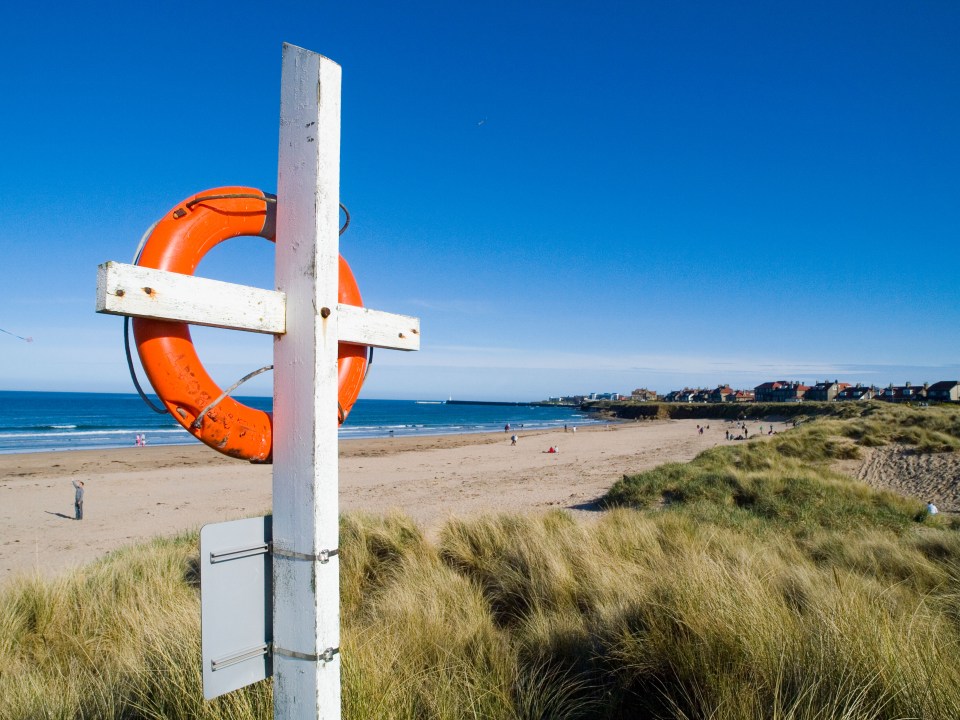

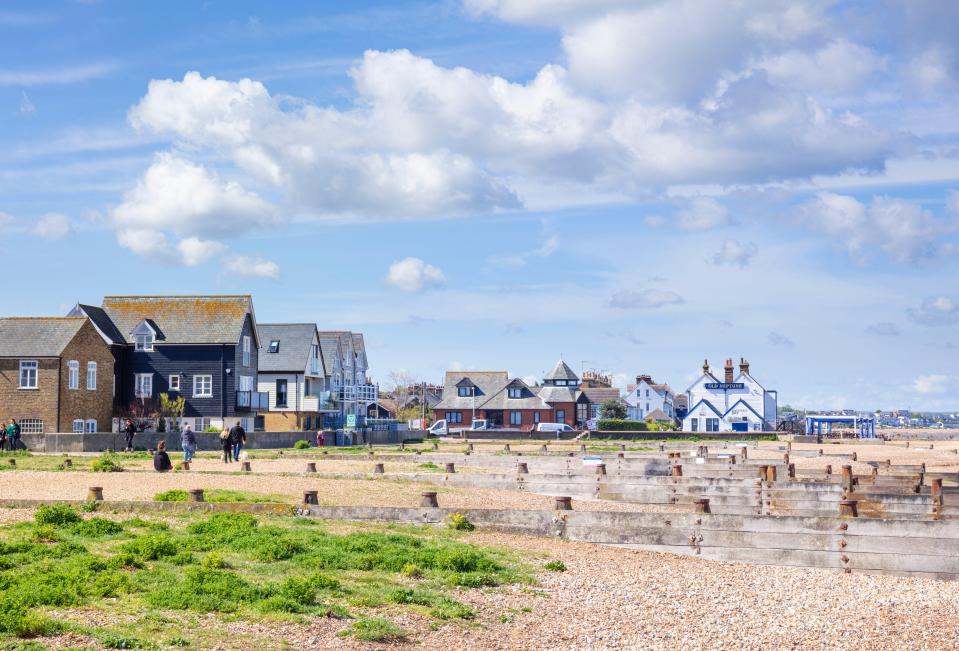
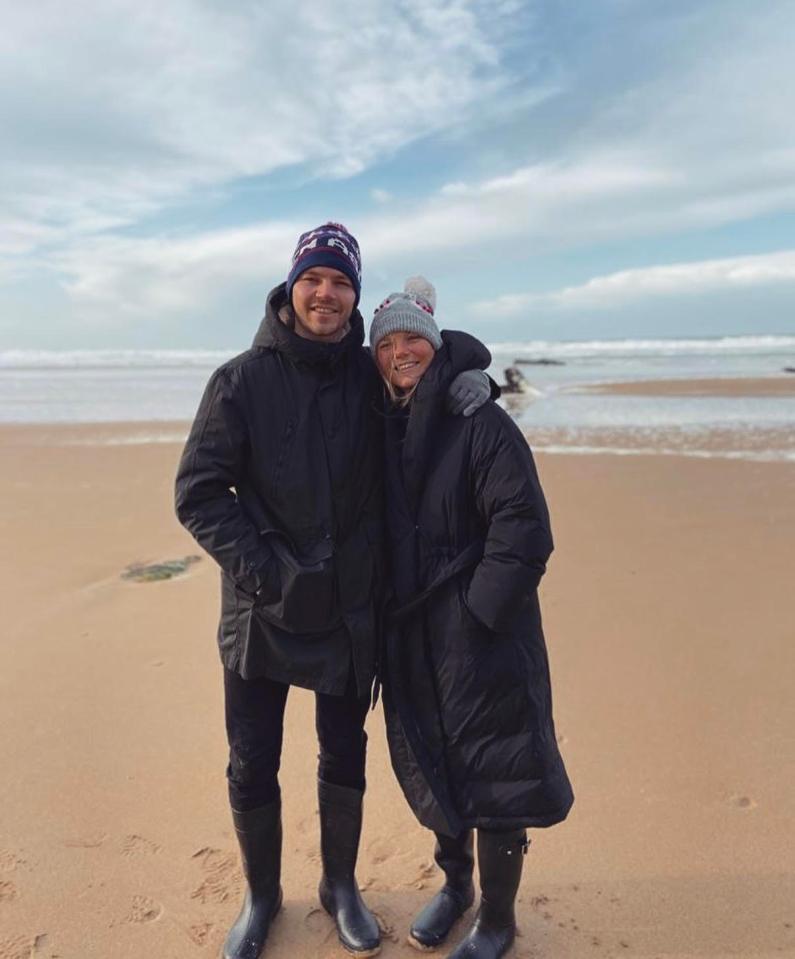
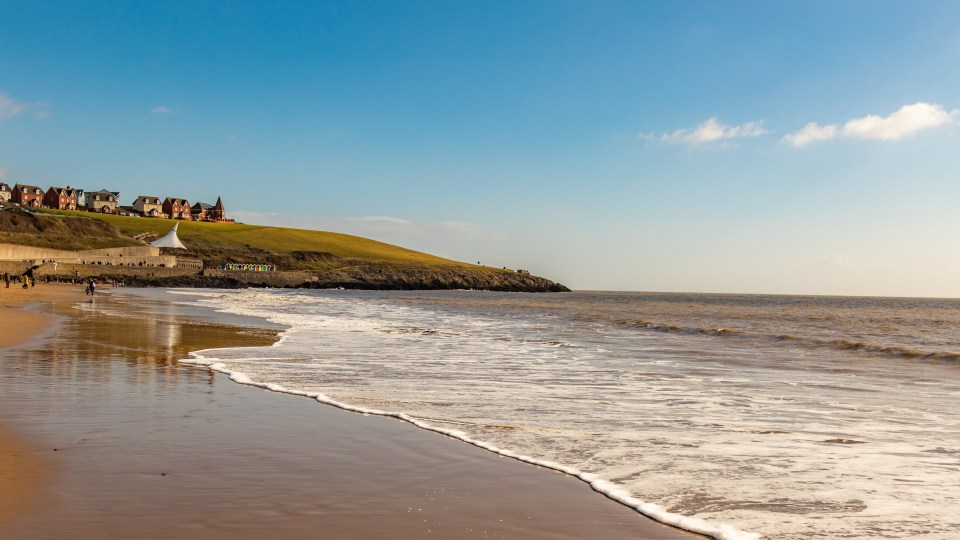


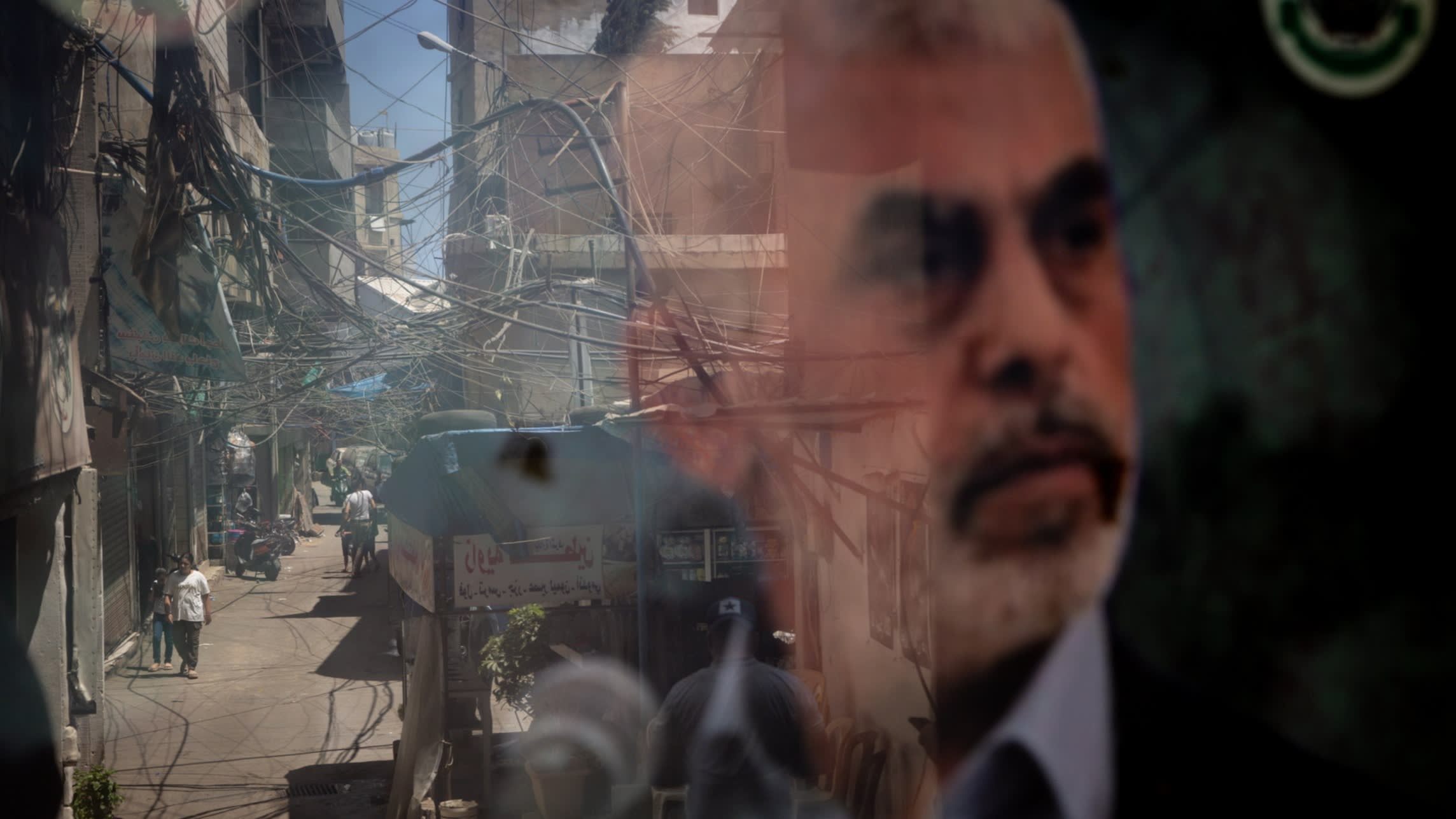








































































































































You must be logged in to post a comment Login